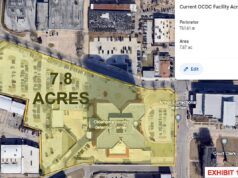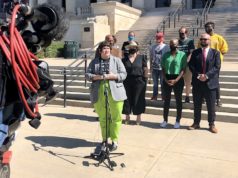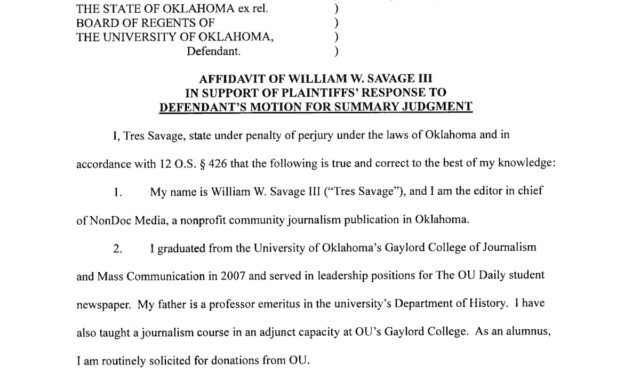

As the child of University of Oklahoma academics and an OU journalism graduate myself, I never thought I would file a lawsuit against my alma mater.
Sure, I learned how to cover government institutions by reporting on OU, its Board of Regents and its culture during my formal journalism education, which included a 2006-2007 stint as editor in chief of the student newspaper. I knew that OU gets sued (a lot), and I’m aware which institution “won” Freedom of Information Oklahoma’s Black Hole Award in 2019.
But why would I — an enthusiastic Sooners fan who literally grew up around campus — choose to become the plaintiff in high-stakes litigation against OU?
Two and a half years into NonDoc, Savage v. University of Oklahoma, I have been baffled by the university’s course of action that has led us to this point. I have been disappointed by how persistently OU has opposed requests for basic transparency regarding important investigations into alleged financial and sexual misconduct that rocked the university just a few years ago.
In an effort to respect the judicial process, I have not written about our lawsuit since August 2021, two months after it was filed. But now — after briefings, depositions, hearings and even OU’s astonishing effort to sanction me for filing their own discovery objections with the court — I believe we have an ethical obligation to update the general public on the case’s status by providing summaries and links to key court filings.
In writing this, of course, I admit some bias in favor of the plaintiff. But hey, that’s why it’s labeled “commentary.” Still, we have a genuine dispute as to material facts, and I hope this post helps you understand the arguments and issues at play.
Jones Day investigated financial, sexual misconduct at OU
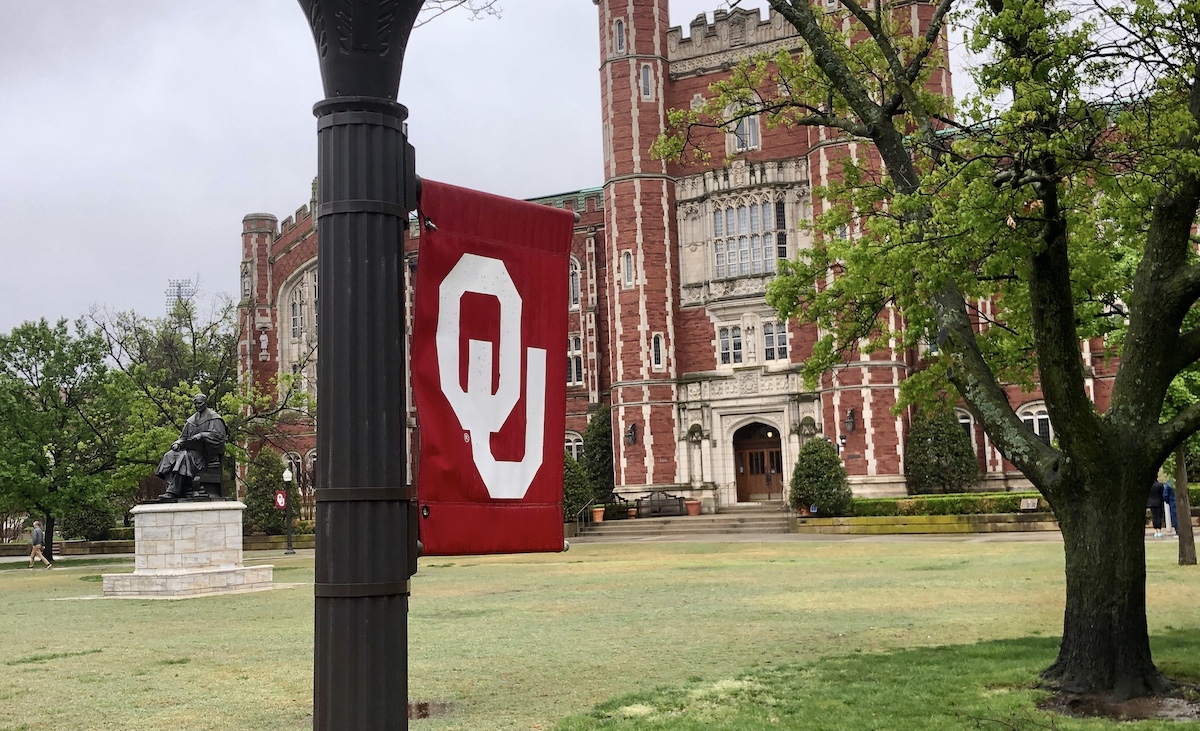
Put simply, things have moved slowly in this case, and we have remained in the discovery stage for going on three years. Even while refusing to fulfill most of our basic requests for evidentiary materials and testimony, however, OU filed a motion for summary judgment in February 2023.
If it’s been a minute since you read our initial petition, here’s a quick summary: We allege that the university’s refusal to release a pair of investigatory reports from 2018 and 2019 violates Oklahoma’s Open Records Act. Those reports, which the university paid the prominent Jones Day law firm more than $1 million to prepare, involve serial misreporting of donor data and alleged serial sexual misconduct by 24-year OU President David L. Boren.
OU says the documents are privileged and meet specific legal exemptions to the Open Records Act for information covered by the attorney-client privilege, the informer’s privilege, personnel records exemption, investigatory records exemption, and the executive’s “deliberative process” privilege. We argue otherwise — both as a matter of law and in light of relevant facts that contradict OU’s claims.
In various emails, calls and gatherings, our attorneys — Lin Weeks and Denver Nicks of the Reporters Committee for the Freedom of the Press and Blake Johnson, Wyatt McGuire and Ryan Kiesel of Overman Legal Group — have tried to hash these matters out with OU’s primary representatives: Michael Burrage and Austin Vance of Whitten Burrage and Drew Neville of McAfee & Taft.
But OU’s motion for summary judgment essentially claims there are no facts in dispute, and it asked Cleveland County District Judge Lori Walkley to rule the Jones Day reports are privileged.
In responding to OU’s motion for summary judgment, we highlighted genuine disputes as to material facts, and we asked the judge to review the two reports in camera — meaning in chambers, out of the parties’ and public’s view. We have argued this private process is necessary for the court to sort through claims about the information contained within the reports.
That request was recently approved, but OU is asking the judge to reconsider. A hearing that had been scheduled for 1:30 p.m. Tuesday, March 12, in Cleveland County District Court has now been delayed until 9 a.m. Monday, April 9. (The OU Board of Regents is scheduled to meet on campus in Norman this Tuesday.)
Speaking of the judge, a different one is handling the case now. After being sworn into a new term in January 2023, Walkley announced her resignation effective July 31 and returned to private practice. Owing to the number of pending motions in our case, she did not rule on the summary judgment question and reassigned the case to Cleveland County District Court Judge Michael Tupper before leaving office.
As you can imagine by perusing the filings below, it has taken the new judge time to get acquainted with the case and address various matters. On Jan. 23, Tupper issued orders on six pending motions:
- Granting NonDoc’s motion for in camera review;
- Denying NonDoc’s motion to compel depositions and for expenses and fees;
- Denying NonDoc’s second motion to compel discovery;
- Granting OU’s motion to file responses under seal;
- Denying NonDoc’s’ motion to strike the affidavit and exclude or limit testimony of OU’s corporate representative, Heidi Long;
- Denying NonDoc’s motion to unseal portions of the record, including the transcript of Long’s deposition.
In allowing Long’s deposition transcript and other OU filings to be filed under seal, Tupper described his reasoning.
“The university’s interest in withholding this information from the public outweighs the public’s interest in disclosure, pending resolution of the instant litigation,” Tupper wrote. “If plaintiffs’ theory of the case is correct, then the harm to the public is delay of information and not denial. Defendant is granted leave to file its response to plaintiffs’ second motion to compel and its response to plaintiffs’ motion to strike the testimony and affidavit of Heidi Long under seal.”
With all of those rulings to digest, this seems as good an opportunity as any to let the public peruse where things stand. You’ll find a linked summary of case filings and key points below.
As always, thank you for reading.
‘Material facts’: Catch up on NonDoc v. OU filings, details
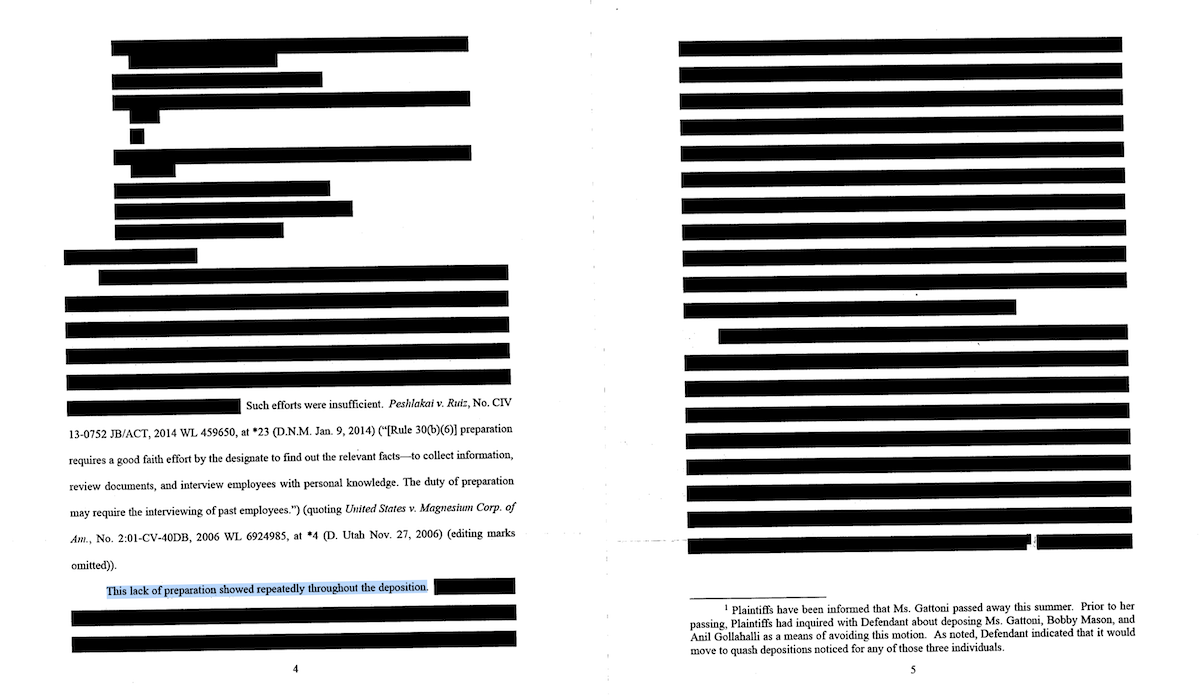
(Editor’s note: Links to files on OSCN.net will open in your phone browser, but they will require PDF download on desktop devices.)
As you look through the filings in this case, you will notice significant redaction on some documents, a visually humorous but practically problematic situation that underscores how hard OU is fighting to keep the public from knowing what it learned about the serious allegations at hand.
While OU officials and regents have largely refused to discuss the investigations’ findings, it’s worth remembering that Jones Day found something worthy of disclosing donor data misreporting to U.S. News & World Report and something worthy of David Boren resigning and relinquishing “his affiliation with the University of Oklahoma.”
Despite OU claiming it must keep even general summaries of the sexual misconduct investigation entirely private to protect victims, the only man who has spoken publicly about Boren’s behavior and unwanted advances has faced criticism from Boren’s attorneys, who contend his allegations were never “credible.”
While dozens of documents exist in the public record on OSCN, the following 23 hyperlinks present PDFs of particularly relevant case filings:
- June 10, 2021: NonDoc’s petition seeking release of the Jones Day reports.
- July 26, 2021: OU’s answer to NonDoc’s petition.
- May 20, 2022: NonDoc’s motion to compel discovery.
- Feb. 13, 2023: OU’s motion to quash NonDoc’s notice to depose former OU President Jim Gallogly.
- Feb. 13, 2023: OU’s motion for summary judgment.
- Feb. 21, 2023: Judge Walkley’s order partially granting NonDoc’s motion to compel discovery.
- Feb. 28, 2023: NonDoc’s response to OU’s motion to quash Gallogly deposition.
- March 31, 2023: Judge Walkley’s order granting OU’s motion to quash deposition request of Gallogly; instructing parties that NonDoc could take the deposition of OU’s official representative(s).
- June 16, 2023: NonDoc’s response to OU’s statement of material facts.
- June 16, 2023: NonDoc’s statement of arguments and authorities in response to OU’s motion for summary judgment. (Part B: Further exhibits.)
- June 16, 2023: NonDoc’s motion for in camera review.
- June 30, 2023: OU’s response to NonDoc’s motion for in camera review.
- July 10, 2023: NonDoc’s motion to strike the affidavit of OU’s Heidi Long and exclude testimony based on lack of personal knowledge.
- July 18, 2023: Judge Walkley’s order transferring the case to Judge Tupper.
- Aug. 7, 2023: Judge Walkley’s orders allowing OU materials to be filed under seal: 1; 2; 3.
- Sept. 28, 2023: NonDoc’s motion to compel additional depositions of OU representatives.
- Oct. 12, 2023: OU’s response to NonDoc’s motion to compel additional depositions.
- Jan. 23, 2024: Judge Tupper’s six orders regarding in camera review, additional depositions, additional discovery and sealing of documents.
- Feb. 2, 2024: OU’s motion to reconsider granting of in camera review.
- Feb. 21, 2024: NonDoc’s response to OU’s reconsideration request.
To understand facts related to our presentation of the case, please note a few exhibits in NonDoc’s filings:
- Affidavit of Tres Savage.
- Affidavit of Jess Eddy.
- Affidavit of Sen. Julie Daniels.
- Correspondence from then-OU regent Gary Pierson to former President Jim Gallogly (Plaintiffs’ Exhibit L).
Speaking of Jim Gallogly, you will see that our efforts to depose the former president about the circumstances of Jones Day’s contracts and the nature of their inquiries — facts to which Gallogly could directly speak — have been opposed by OU and denied by the court.
Although we were able to depose Long and OU open records director Ferris Barger as official representatives of the university, neither those transcripts nor our subsequent arguments about the inadequacy of Long’s knowledge relating to key questions of fact can be viewed owing to redactions and a court order about the depositions.
Unfortunately, as we await a court hearing this spring on OU’s motion for summary judgment, the sealing in this case limits my ability to tell you what we’ve learned about how Jones Day was hired, how investigators pursued the inquiries and how information in the reports has or has not been handled — some of which, we have argued, undercuts the ORA exemptions OU has raised.
Prior reporting on the Jones Day investigations
Lastly, I would like to emphasize that this litigation has been brought as part of my multi-year effort to report this major story in a thorough and responsible way. Throughout, I have attempted to rely on the journalistic skills and ethical parameters taught to me by OU professors.
Ironically, despite paying Jones Day to investigate serious financial and sexual misconduct allegations, the university’s general refusal to discuss the findings has abdicated OU’s obligation to provide the transparency expected by students, parents, professors, taxpayers and policy makers. Instead of answering obvious questions and leveling with Oklahomans, OU has left it up to me to explain what happened to the best of my understanding.
To catch up on stories that have led to this point, please consider reviewing NonDoc’s prior coverage:
- OU graduate alleges sexual battery by David Boren, Tripp Hall (March 26, 2019)
- At OU regents meeting, alleged victims call for Title IX review (April 26, 2019)
- Jones Day assessment: Jess Eddy ‘generally credible’ on Boren allegation (May 28, 2019)
- OU regents: David Boren resigns a professor, ‘brings this matter to a close’ (June 12, 2019)
- Joe Harroz spoke to Jones Day, confirms Title IX review (June 27, 2019)
- David Boren situation features ethical complexities (June 30, 2019)
- ‘Lack of trust’: Suzette Grillot releases David Boren, Renzi Stone phone calls (Sept. 9, 2019)
- OSBI affidavit: Tripp Hall being investigated for rape (Oct. 1, 2019)
- During exit, Boren ensured top OU vice presidents got ‘retention incentive’ payments (March 5, 2020)
- Feds, faculty and audit cause Title IX changes at OU (Sept. 15, 2020)
- Prosecutor declines to charge David Boren, Tripp Hall (Oct. 20, 2020)
- NonDoc files lawsuit seeking Jones Day reports from OU (June 11, 2021)
- OU: Releasing reports on sexual misconduct, donor data ‘serve the public’s curiosity – not its interest’ (June 15, 2021)
As always, thank you for reading. And in this instance, thank you for understanding this litigation never would have occurred but for OU’s refusal to discuss what its contracted investigators learned about serious allegations that resulted in at least some level of reformative actions at the University of Oklahoma.
Should I be able to answer any questions, please do not hesitate to reach out.
(Update: This article was updated at 9:10 a.m. Monday, March 11, to note delay in a court hearing.)










